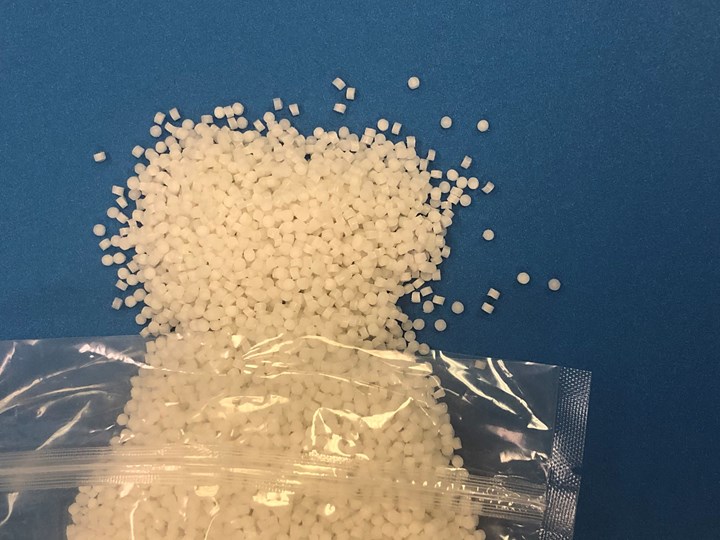Additives: Processing Stabilizer for Repro and/or Recycled HDPE
Addisperse’s NC 203 C stabilizer for repro and/or recycled HDPE compounds rebuilds HDPE’s molecular weight, boosting physical properties.
A new processing stabilizer that has been shown to rebuild the molecular weight of HDPE in a controlled manner has been launched by Addisperse, a business of Aromatic Fusion Inc. (AFI), Bensalem, Penn. Developed for use in compounds and processes containing HDPE repro and/or recycled resin, Addisperse NC 203 C reportedly is a combination of a cross linking agent and an antioxidant.

As a result of multiple heat histories, HDPE is known to break down in molecular weight. This thermal breakdown can create PE wax which dramatically reduces HDPE’s molecular weight, which alters both the melt index and hot strength of the HDPE and compounds containing repro and/or recycled HDPE. One of the most dramatic effects on physical properties is a loss of impact strength, resulting in increased brittleness. According to Addisperse, the addition of as little as 2% of NC 203 C can eliminate many of the negative process and physical property effects when using repro and/or recycled HDPE.
Overall, Addisperse NC 203 C has been shown to increase hot strength, stabilize regrind, minimize stress cracks, increase flex strength and preserve impact strength, along with providing a wider process window.
Related Content
-
Processing Megatrends Drive New Product Developments at NPE2024
It’s all about sustainability and the circular economy, and it will be on display in Orlando across all the major processes. But there will be plenty to see in automation, AI and machine learning as well.
-
PHA Compound Molded into “World’s First” Biodegradable Bottle Closures
Beyond Plastic and partners have created a certified biodegradable PHA compound that can be injection molded into 38-mm closures in a sub 6-second cycle from a multicavity hot runner tool.
-
Multilayer Solutions to Challenges in Blow Molding with PCR
For extrusion blow molders, challenges of price and availability of postconsumer recycled resins can be addressed with a variety of multilayer technologies, which also offer solutions to issues with color, processability, mechanical properties and chemical migration in PCR materials.















